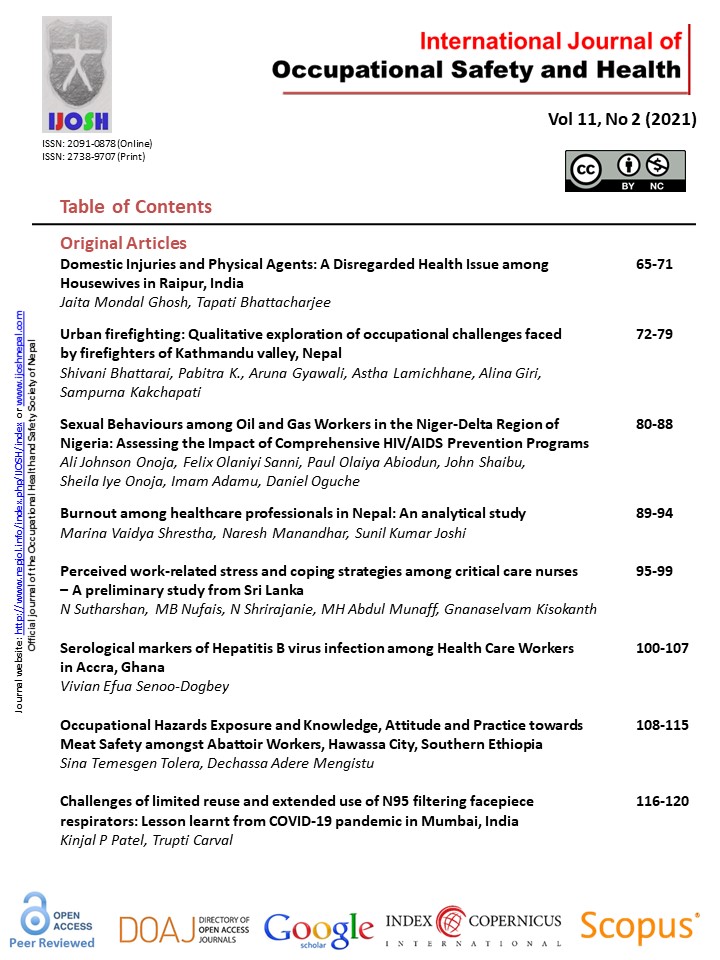Urban firefighting: Qualitative exploration of occupational challenges faced by firefighters of Kathmandu valley, Nepal
DOI:
https://doi.org/10.3126/ijosh.v11i2.35982Keywords:
Firefighters, Experience, Nepal, Stress, Urban firefightersAbstract
Introduction: Urban firefighting is a challenge however very less is known about how the firefighters manage on addressing fire disasters when it occurs or what sort of health risks they generally face. The health risks in firefighting are abundant however very less is explored, in regard to the Nepalese context. This study thus aims to explore general characteristics and potential stress causing factors among urban firefighters of Kathmandu valley as Nepal lacks any such study.
Methods: A qualitative study design with in-depth interview questions were used to interview 15 currently employed firefighters and the station in charge of Kathmandu valley and thematic analysis was done to derive results. The study was conducted in two phases, the first phase including the use of locally translated and validated DASS-21 (Depression Anxiety and Depression Scale) tool to identify potentially stress suffering firefighters while the second phase included use of in-depth interview (IDI) and key informant interview (KII) format to explore stress causing factors among firefighters.
Results: The results showed that most firefighters were stressed due family separations, difficult PPEs, lack of human resource adequacies, income insufficiency, underwhelming response at active site and lack of health addressing programs in the station. The firefighters additionally mentioned stress due to recurring bluff calls and unmanaged traffic in the city.
Conclusion: Despite the solvable problems, the station lacked standard operating guidelines, physical fitness and mental well-being programs, deemed essential for the occupation in general. Therefore, concerned authorities must prioritize the needs of urban fire station and firefighters.
Downloads
Downloads
Published
How to Cite
Issue
Section
License
This license enables reusers to distribute, remix, adapt, and build upon the material in any medium or format for noncommercial purposes only, and only so long as attribution is given to the creator.





